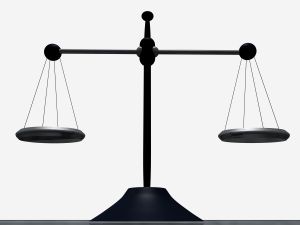
Some recent decisions from Canadian courts will be of interest to tax practitioners and advisors, ranging from charitable tax shelters, to the duties of fairness owed by the Canada Revenue Agency (CRA), to medical expenses. In general, the cases seem to indicate that courts expect both the CRA and taxpayers not to expect too much.
Last month, the Supreme Court of Canada refused leave to appeal in Kossow v. The Queen, which dealt with a charitable donation tax scheme. The taxpayer, Kathryn Kossow, had argued that her donations to a charity (which purchased art) were a gift, as required by the Income Tax Act (ITA,) and were not principally motivated by a tax benefit.
Kossow had contributed $50,000, $60,000 and $50,000 in each of three years, claiming tax credits of between $20,000 and $24,000 in each year. However, she had used her own cash for only 20% of the donations and received 25-year, interest free loans for the rest. The Tax Court of Canada ruled that the donation was not a gift due to the significant benefit the taxpayer received in the form of a long term, interest-free loan.
The tax court also found that little of the donation was actually received by the charity and that the charity itself was required to purchase art from the creators of the charitable donation scheme. The Federal Court of Appeal agreed with the tax court; with the failure to obtain leave to appeal to the Supreme Court of Canada, the decision in Kossow is now final.
Another recent decision, in this case from the British Columbia Supreme Court, appears to break some new ground when it comes to the conduct of the CRA towards taxpayers. The April, 2014 case dealt with an appeal by Irvin Leroux, a businessman and former campground owner near Prince George, B.C.
Following a reassessment, which included a finding of gross negligence by the taxpayer, the CRA concluded that Leroux owed $600,000 in back taxes. Following his appeal, Leroux — who has a grade 7 education — was found to be entitled to a $25,000 refund. In the meantime, however, he lost his home and his business. Leroux sued the CRA, alleging that he had been threatened, mislead and blackmailed by the CRA.
In the past, taxpayers have generally not been able to win cases alleging this type of negligence and mistreatment, as courts have agreed with the CRA that it owes no such duty of care to taxpayers.
However, the court in this case disagreed. It found that such a duty of case was owed to Leroux and further, that it had been breached by the CRA’s finding of gross negligence against him.
The judgment notes:
“CRA must live up to their responsibilities to the Minister and to the Canadian public, nearly all of whom are taxpayers, by applying a little common sense when the result is so obviously devastating to the taxpayer. It is a poor response to say ‘we put together our position without regard to the law; leave it to the taxpayer to appeal to Tax Court because we are immune from accountability.'”
A discussion of the decision can be found on the tax blog maintained by law firm Denton’s LLP.
The deduction of medical expenses is an ongoing issue that can be of great concern to clients. In a May decision of the Tax Court of Canada, Ismael v. The Queen, the court heard the appeal of a taxpayer who had sought fertility treatments outside of Canada. These treatments included travel for herself and her spouse, to fertility clinics in New York State and Ukraine, as well as the cost of payments to a clinic and to an egg donor for the costs of donating an egg.
On appeal, the CRA conceded that the payments to the fertility clinics were deductible. However, the taxpayer failed to persuade the court that a number of other expenses were also deductible. These included the taxpayer’s costs of travel (for herself and her spouse), hotels, food and banking services. Specifically, the court ruled that payments to the egg donor were not deductible because an unfertilized egg is not an “organ” under s. 118.2 of the Income Tax Act, which details a wide range of medical expenses that are deductible.